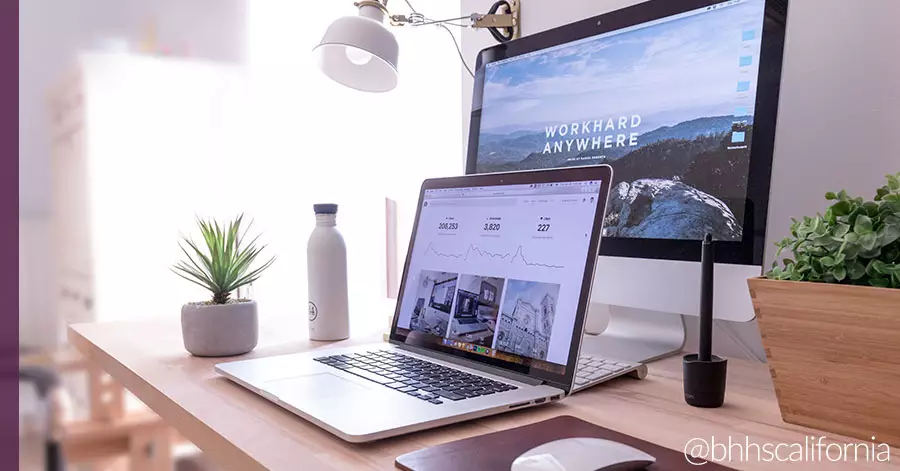
The COVID-19 pandemic turned many professionals into remote workers.
If your work from home situation is starting to look like it might be more permanent than it initially seemed, then it’s time to stop working at the kitchen table. You need a home office. Ideally, you have a spare room you can dedicate to your work, but if not, an attic, basement or even a large closet can be converted into a perfectly suitable home office.
Use these tips from our partners at American Home Shield® to create a functional home office.
A spare bedroom is the best location for a home office — it’s out of the way, has a door you can close, should have several outlets and probably has windows for natural light. And, if you do need to host guests occasionally, a Murphy bed can easily be stored when not in use, so you will have plenty of space to work in.
If you don’t have a spare room, work with what you have. An attic or basement can also work, particularly if you need a larger space for more than one person to work from home. But you don’t need a whole spare bedroom or a spacious attic to create a private, dedicated home office space. Many large closets can accommodate slim-profile desks or floating desks, with floating shelves above for storage. When you’re done with work for the day, simply shut the door.
One of the most common tips for working from home is that you shouldn’t ignore ergonomics. When choosing a space for a home office, make sure you have room for a properly sized desk (at least 29 inches tall), and a comfortable, adjustable-height office chair, preferably one with casters, adjustable armrests and an adjustable seat pan tilt.
Are you the only person who will be working from home, or do you have a spouse who also needs a home office? You might choose a desk large enough to accommodate two people, although you’ll need a room with double the space — like an attic or finished basement, or even a garage.
Consider how much time you’ll be spending in your home office, too. Do you work long hours? If so, you’ll want a larger desk and a more comfortable chair, then.
Indirect light is important in any office setting. Natural light is best, if you have a space that offers it, but you should use curtains or blinds to diffuse it and arrange your desk so that natural light sources don’t cause a glare on your screen. Install an overhead light fixture or add lamps that aren’t directly in your line of sight or right behind you to provide any additional light you might need.
If you’re going to be working from home, you need to make sure that your internet is fast and reliable. Obviously, there will most likely be an additional cost, so it’s worth checking with your employer to see if they will cover additional cost.
Remember that if you have multiple people working from home and children doing schoolwork, your normal internet speed probably won’t hold up.
No matter what space you choose for your new home office, you’re probably going to need more electrical outlets. You might also need a hardwired Ethernet connection and other data cabling for your equipment. Take the time now to install the outlets and data cabling infrastructure your new home office needs, so your work hours can pass smoothly and with minimal interruptions.
Working from home definitely has its perks. For one thing, you can’t beat the commute! With a home warranty plan from American Home Shield®, you can protect the systems that make it possible for you to work from home.
Like what you see here? Sign up for more! Our free e-newsletter informs you of listings in your community, insider real estate tips, the latest in home trends, and more.
November 30th, 2020 at 11:00 am